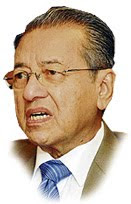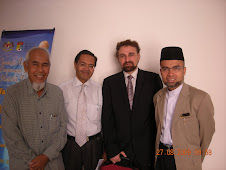Agence France-Presse - 4/27/2009 7:21 AM GMT
Malaysia to liberalise banking sector: prime minister
Malaysia Monday announced measures to liberalise its banking sector, allowing nine new banking and insurance licences and easing foreign ownership limits for non-commercial banks.
Prime Minister Najib Razak said that the move, which comes shortly after he liberalised parts of the services sector, was aimed at making Malaysia more competitive amid the global downturn.
"The liberalisation measures announced today aim to enhance Malaysia's linkages with international economies and promote greater economic regional integration," he told a news conference.
The nine new banking and insurance licences to be issued between 2009 and 2011 include five for commercial banks, two for Islamic banks and two for operators of "takaful," or Islamic insurance.
The foreign equity limit for investment banks, Islamic banks and takaful operators will be raised from 49 to 70 percent.
"The foreign equity limit for domestic commercial banks will remain at the current 30 percent," Najib said.
Malaysia currently has 13 locally incorporated foreign banks, including HSBC and Citibank, and three foreign Islamic banking operators. No new foreign commercial banks have won approval to operate here for more than a decade.
Central bank chief Zeti Akhtar Aziz dismissed suggestions that there could be limited demand for the licences due to the dire state of the finance sector globally.
"Our liberalisation is sequenced and managed. It is a gradual process. We have had many who came to see us. There have been significant inquiries," the Bank Negara governor said, adding that she expected a recovery in 2011.
"The rationale for the liberalisation is to enhance our international linkages with other parts of the world so investments will take place. This is important in view of the slowing down of the global economy," she told the news conference.
Najib said that the banking and insurance industry represented 11 percent of Malaysia's GDP in 2008, compared with 9.2 percent in 2000, and employed 140,000 people.
Subscribe to:
Post Comments (Atom)







































No comments:
Post a Comment